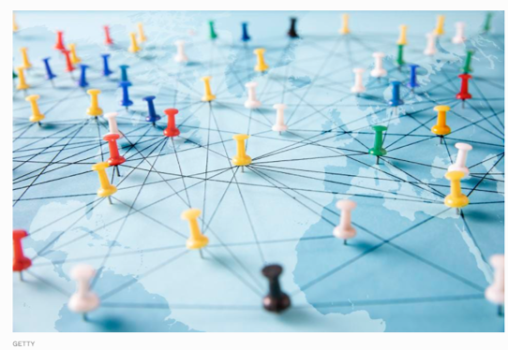K
Kathleen Martin
Guest
The robust development of artificial intelligence (AI) technologies has made it possible to apply such developments in practices across a wide range of daily human activities. The progress of machine intelligence capacity has allowed business leaders to significantly increase the level of business process automation.
In 2019, Adobe reported that 15% of enterprises surveyed actively used AI technologies in their operations, while representatives of another 31% of companies started seriously considering introducing such innovations within 12 months of the survey. As time passed, and the range of AI-powered solutions continued to expand, more and more enterprises considered deploying AI in some form or another. In a report from Deloitte, 83% of adopters surveyed indicated that they consider AI-powered technology to be one of the top business priorities throughout the digitalization journey. Hence, AI-powered operating processes are the inevitable future of humankind, which will allow individuals to automate routine tasks and companies to increase operating efficiency and thus boost revenues and cut costs. The big question for today is: What are the future trends in AI application in our lives and business environment?
Breakthroughs And Challenges In AI Development
AI development and use is currently an issue to focus on. Specialists and mass media expect technology advancements to allow complete redefining of the role of machine intelligence in modern life. This is about the development of computer vision, natural language processing and neural networks. The adoption of AI-fueled solutions within big tech continues to gain momentum. One of the biggest examples dates back to 2013 when it was reported that 35% of all online purchases on Amazon were made based on the recommendation algorithm, which advises suitable, and similar goods for customers.
Social needs lead to automation of even the most old-fashioned and conservative parts of the economy, such as agriculture. AI has the ability to dramatically transform the way humans do farming. U.S. farmers are already conducting (subscription required) experiments using robotized pest control technologies, and Russian farms are testing unmanned harvesters for cereal crops. But the scope of AI abilities within farming doesn’t end here, as AgTech company Indigo is using AI and big data-powered genome sequencing techniques to predict the most beneficial microbes for plants in order to increase crop yields and reduce risks.
Continue reading: https://www.forbes.com/sites/forbesfinancecouncil/2021/12/27/how-machine-intelligence-is-changing-the-modern-world/?sh=8c1e2565936c
In 2019, Adobe reported that 15% of enterprises surveyed actively used AI technologies in their operations, while representatives of another 31% of companies started seriously considering introducing such innovations within 12 months of the survey. As time passed, and the range of AI-powered solutions continued to expand, more and more enterprises considered deploying AI in some form or another. In a report from Deloitte, 83% of adopters surveyed indicated that they consider AI-powered technology to be one of the top business priorities throughout the digitalization journey. Hence, AI-powered operating processes are the inevitable future of humankind, which will allow individuals to automate routine tasks and companies to increase operating efficiency and thus boost revenues and cut costs. The big question for today is: What are the future trends in AI application in our lives and business environment?
Breakthroughs And Challenges In AI Development
AI development and use is currently an issue to focus on. Specialists and mass media expect technology advancements to allow complete redefining of the role of machine intelligence in modern life. This is about the development of computer vision, natural language processing and neural networks. The adoption of AI-fueled solutions within big tech continues to gain momentum. One of the biggest examples dates back to 2013 when it was reported that 35% of all online purchases on Amazon were made based on the recommendation algorithm, which advises suitable, and similar goods for customers.
Social needs lead to automation of even the most old-fashioned and conservative parts of the economy, such as agriculture. AI has the ability to dramatically transform the way humans do farming. U.S. farmers are already conducting (subscription required) experiments using robotized pest control technologies, and Russian farms are testing unmanned harvesters for cereal crops. But the scope of AI abilities within farming doesn’t end here, as AgTech company Indigo is using AI and big data-powered genome sequencing techniques to predict the most beneficial microbes for plants in order to increase crop yields and reduce risks.
Continue reading: https://www.forbes.com/sites/forbesfinancecouncil/2021/12/27/how-machine-intelligence-is-changing-the-modern-world/?sh=8c1e2565936c

